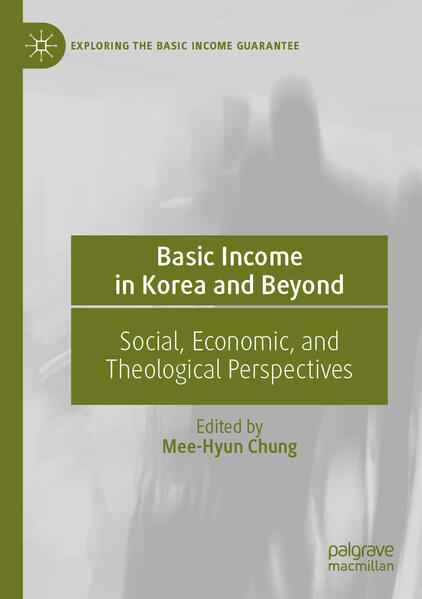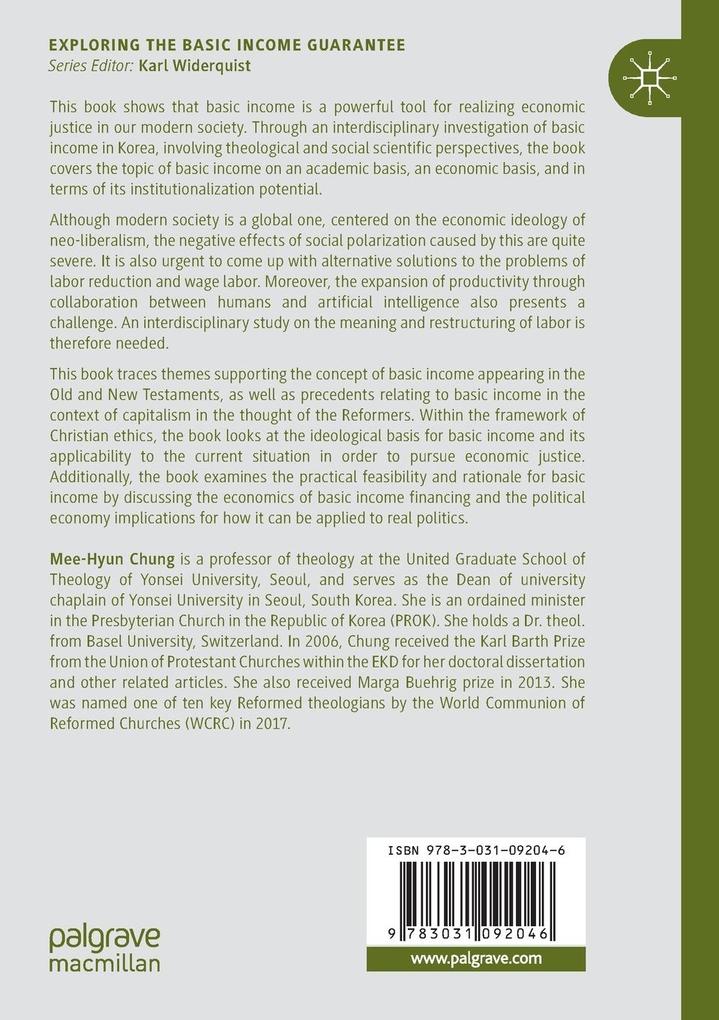
Zustellung: Do, 10.07. - Sa, 12.07.
Versand in 2 Tagen
VersandkostenfreiBestellen & in Filiale abholen:
This book shows that basic income is a powerful tool for realizing economic justice in our modern society. Through an interdisciplinary investigation of basic income in Korea, involving theological and social scientific perspectives, the book covers the topic of basic income on an academic basis, an economic basis, and in terms of its institutionalization potential.
Although modern society is a global one, centered on the economic ideology of neo-liberalism, the negative effects of social polarization caused by this are quite severe. It is also urgent to come up with alternative solutions to the problems of labor reduction and wage labor. Moreover, the expansion of productivity through collaboration between humans and artificial intelligence also presents a challenge. An interdisciplinary study on the meaning and restructuring of labor is therefore needed.
This book traces themes supporting the concept of basic income appearing in the Old and New Testaments, as well as precedents relating to basic income in the context of capitalism in the thought of the Reformers. Within the framework of Christian ethics, the book looks at the ideological basis for basic income and its applicability to the current situation in order to pursue economic justice. Additionally, the book examines the practical feasibility and rationale for basic income by discussing the economics of basic income financing and the political economy implications for how it can be applied to real politics.Inhaltsverzeichnis
Chapter 1: Introduction. - Part 1: Biblical Implication regarding Basic Income. - Chapter 2: Two foundations of the Theory of Basic Income: Natural Rights and Biblical Laws . - Chapter 3: A Reflection for Anyone Unwilling to Work (2 Thessalonians 3:10) from the Perspective of Basic Income . - Part 2: Church Historical, Ethical and Feminist Theological Approach on Basic Income. - Chapter 4: Basic Income Based on Luther and Calvin s Economic Thoughts: Focusing on the Jubilee Thought. - Chapter 5: The Necessity and Directivity of Basic Income from the Perspective of Christian Ethics: Focusing on the Ethics of the Other . - Chapter 6: A Discourse on Basic Income from the Perspectives of Reformed Spirituality and Feminist Theology . - Part 3: Socio Ethical Suggestion and Social Scientist Approaches toward Realization of Basic Income. - Chapter 7: A Social Ethical concept of Ecological- Oriented Basic Income-Based on the plan of income distribution at the level of national economy . - Chapter 8: Left and Right Basic Income Models and an Alternative: The Variable Basic Income . - Chapter 9: A pro-outsider policy? Why an unconditional basic income could contribute to tackling the causes and effects of labor market dualization . - Chapter 10: Conclusion: Summary and suggestion of research results.
Produktdetails
Erscheinungsdatum
10. Februar 2024
Sprache
englisch
Auflage
1st edition 2023
Seitenanzahl
272
Reihe
Exploring the Basic Income Guarantee
Herausgegeben von
Mee-Hyun Chung
Verlag/Hersteller
Produktart
kartoniert
Abbildungen
XIX, 251 p. 20 illus., 17 illus. in color.
Gewicht
356 g
Größe (L/B/H)
210/148/15 mm
ISBN
9783031092046
Entdecken Sie mehr
Bewertungen
0 Bewertungen
Es wurden noch keine Bewertungen abgegeben. Schreiben Sie die erste Bewertung zu "Basic Income in Korea and Beyond" und helfen Sie damit anderen bei der Kaufentscheidung.










